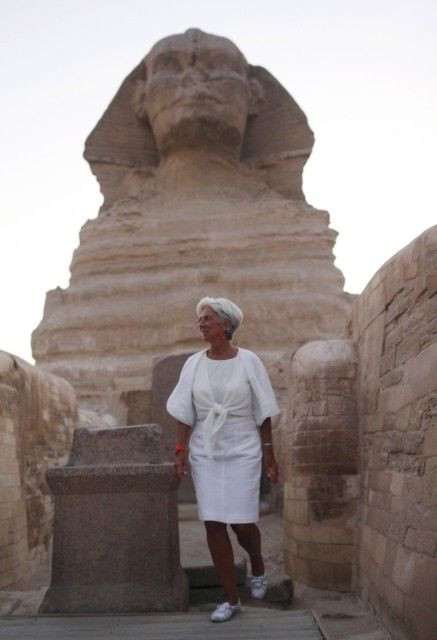Egypt Seeks $4.8-Billion Loan From IMF

The Egyptian government Wednesday sought a $4.8-billion loan from the International Monetary Fund to help boost the country's economy struggling to recover from a political turmoil since last year's uprising that led to the fall of President Hosni Mubarak.
Egypt's Prime Minister Hesham Qandil said the government hoped to finalize the negotiations pertaining to the loan by December.
The nation's earlier discussions with the IMF for a loan, during the rule of military led Supreme Council, were unsuccessful partly due to the continued violence ahead of the parliamentary elections.
Speaking at a joint news conference with IMF chief Christine Lagarde, Qandil said Lagarde's visit sent to the world a signal that Egypt was "stabilizing."
When asked if the IMF wanted the Egyptian parliament to approve any loan accord, Lagarde said, "It's going to take a bit of time and we feel that we have perfectly competent authorities to negotiate with," adding that an elected president alone might fulfill the condition of broad political support, Reuters reported.
Lagarde said that the IMF would look at Egypt's fiscal, monetary and structural issues, promising that it would be a partner for the nation's economic reforms.
"The IMF has maintained a close dialogue on economic policy with the Egyptian authorities since the start of the transition and provided considerable technical assistance upon request from the government," she said in a statement released after the press conference.
Qandil said he expected the IMF loan would be for five years with a grace period of 39 months and interest rate of 1.1 percent. He said details were still being discussed.
"God willing there will be an agreement on a map for work extending to November or the beginning of December during which the loan will be signed with the IMF," he was quoted as saying by Reuters.
A technical team is set to arrive in Cairo early September as part of the negotiation process, Al Jazeera reported.
Egypt's Muslim Brotherhood had earlier voiced concerns about accepting the IMF loan, but President Mohamed Morsi, who belongs to the Freedom and Justice Party backed by the Brotherhood, appears keen on striking a deal with the IMF as the nation struggles to regain the investors' confidence.
In January 2011, Egypt turned down loan offers from the IMF and the World Bank, banking on the monetary assistance it received from Qatar and Saudi Arabia.
Egypt's net international reserves fell to $16.4 billion by the end of January from $35.6 billion at the beginning of 2011, the New York Times reported citing data from the Central Bank of Egypt.
In the 12 months till the end of June, the government borrowed about $12 billion, which amounts to 4.5 percent of GDP, from the central bank, in a desperate measure to finance its budget deficit, Reuters reported.
© Copyright IBTimes 2025. All rights reserved.






















